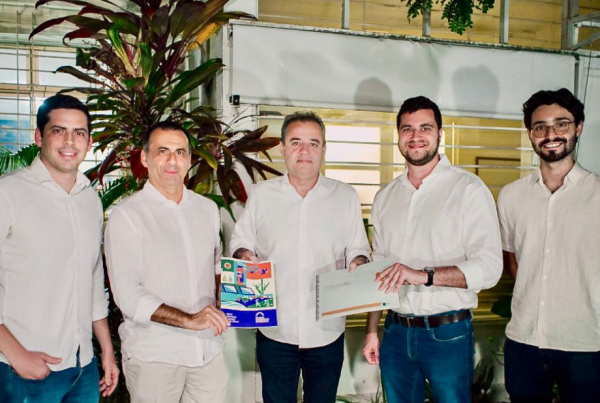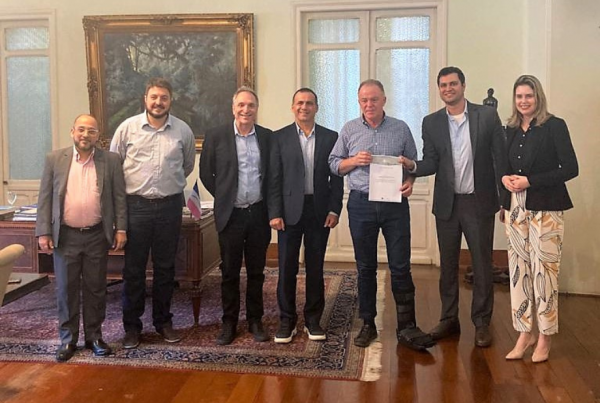Catholic, Evangelical, Jewish, Afro-Brazilian, and Indigenous leaders are leading a multi-religious event in defense of the climate in the oldest synagogue in the Americas, Kahal Zur Israel, on Rua do Bom Jesus, near Marco Zero, in Recife Antigo. There, in the 17th century, the founders of New York departed from. Faith in Climate was the genesis of an ecumenical movement of mobilization against the climate emergency. It was held during the Brazilian Conference on Climate Change by the Centro Brasil no Cima (CBC), Instituto de Estudos de Religião (ISER), and Instituto Clima e Sociedade (ICS), with the support of the Federação Israelita de Pernambuco (FIPE), presided by Sônia Sette.
The protagonists were Rabbi Nilton Bonder; Father Fábio Santos, coordinator of the Commission for Ecumenism of the Catholic Church in Pernambuco; Pastor Paulo César Pereira, president of the Alliance of Baptist Churches, Mother Beth of Oxum, and Jaqueline Xakuru, a young indigenous leader. The event was attended by Karenna Gore, director of the Center for Earth Ethics, daughter of former U.S. Vice President Al Gore. She works with ecumenical mobilization in defense of the climate. The inter-religious ceremony was followed by a debate with its protagonists at the nearby SinsPire cultural center at the Arsenal Square.
It is not difficult to understand why these religions and others need to mobilize around this issue following the example of Pope Francis’ position with the encyclical Laudato Si’ and the recent Synod of Bishops on the Amazon. In all of them the planet and its nature (the biosphere to scientists), its living beings and the restless and restless humanity it carries have a relationship with the Divine, constitute a sacred creation or existence, clearly under threat. Global warming that is on a trajectory of 4.5 degrees, hell on earth by the end of the century; the accelerated extermination of biodiversity and the accelerated pollution and acidification of the seas are obvious and ululating phenomena. In theory, there can be no religion that remains indifferent to this. In theory only, because the vast neo-Pentecostal universe that serves as the support base for the current government remains mostly silent but needs to be shaken up.
The Recife event was the first and brought together religious leaders who were already very sensitive – if not direct victims – of the devastation. It also dealt with the religious intolerance that is against, especially Afro-Brazilian and indigenous creeds.
We have only taken the first step. The continuation is to establish dialogue with those who have not yet awakened or taken a stand on climate. I intuit that this is an easier path than dialog about other topics. The next steps should be in this direction and find interlocutors and fine-tune the communication tools that are the most effective.
These communities also need to be sensitized to work for the purgatory of the 1.5 degrees. The contemporary miracle.




